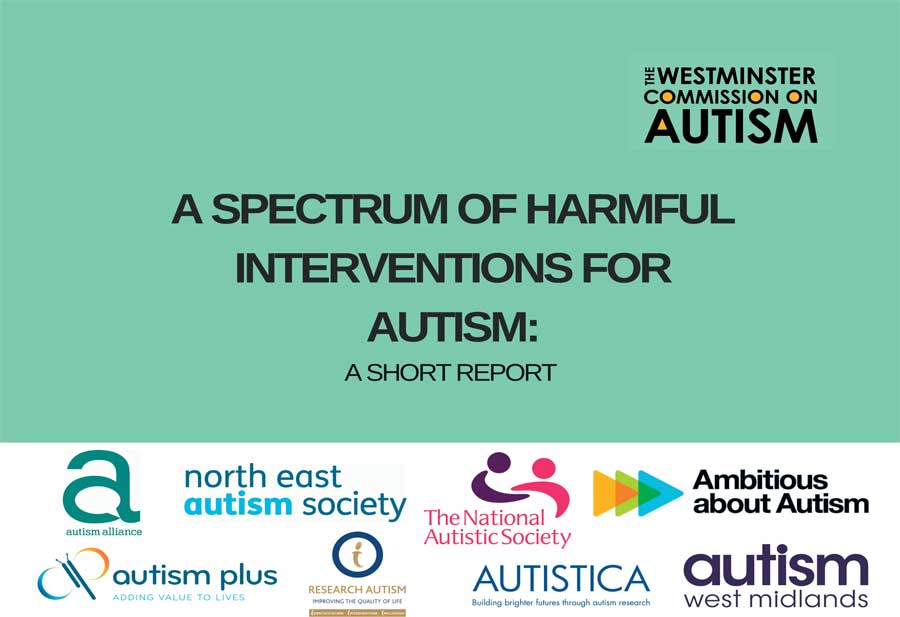 A SPECTRUM OF HARMFUL INTERVENTIONS FOR AUTISM:
A SPECTRUM OF HARMFUL INTERVENTIONS FOR AUTISM:
A SHORT REPORT
Introduction
Every autistic individual deserves to live a long and happy life; supported to reach their full potential, protected from harm and empowered to enjoy life in the way they want to. Many autistic people live independent lives while others receive help from family members, schools, carers and support services.
Choosing the right support or the desired interventions can be very difficult for autistic people and their advocates. The interventions offered or searched for will depend on the experiences, training or personal preferences of the professionals, parents or autistic individuals concerned.* The Research Autism website lists over
1000 therapies, treatments and interventions for autism.
Some suggested interventions are well researched, well-understood and are recommended by the National Institute for Health and Care Excellence. However, others have no evidence-base or are harmful or illegal yet are still promoted and sold.
It can be difficult to know which interventions are genuine, approved, effective and ethical and which are harmful, unapproved, unethical or a waste of money.
It is critically important that interventions are well-regulated and that assessment of the use of any approach considers the impact on the long-term physical, social and psychological well-being of the person. Interventions and their practitioners or promoters must not be allowed to exploit autistic people for financial or other gain and must be free from conflicts of interest.
The Westminster Commission on Autism has conducted a short inquiry into the regulation of these treatments, therapies and products. This report outlines the rules, regulations and legislation on autism interventions. Then it gives some guidance and advice on choosing interventions. Finally the report makes some recommendations for change.
Share This Post:









Leave a Reply